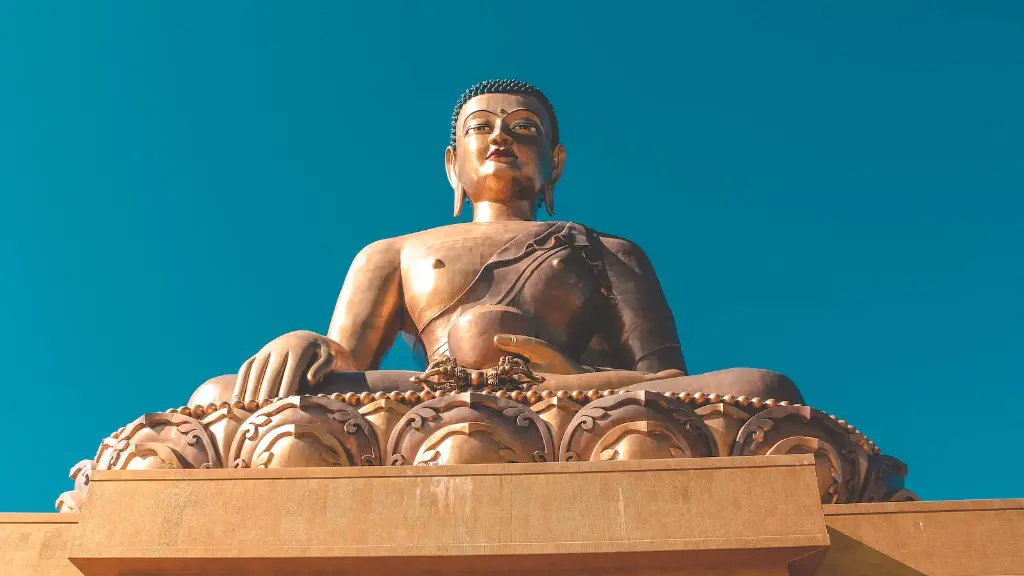Who Wrote The Vedas In Hinduism: History And Current Understanding
The Vedas, the most sacred scriptures in Hinduism, were composed over a period of several centuries and hold a major position in Hindu philosophy. The Vedas contain hymns, incantations, prayers, and other forms of devotional and philosophical writings. There are four main Vedas – the Rigveda, the Yajurveda, the Atharvaveda, and the Sama Veda – and all of them consider to be revelations from the divine. Despite their religious importance, there is still much debate as to who exactly wrote the Vedas. In this article, we will review the history, explore the current understanding of their authorship, and provide insights into the various beliefs surrounding their origins.
The oldest of the Vedas, the Rigveda, is believed to have been composed around 1500-1200 BCE, with the other three Vedas estimated to have been composed at later dates. For centuries, it was widely believed that the Vedas were composed by authors divinely inspired by God, but this understanding has changed as more detailed research into their authorship has been undertaken. Today, many scholars believe that the Vedas were written by multiple authors, with contributions from numerous cultures, over a period of several centuries. One of the earliest advocates of this understanding was Max Müller, who proposed that the Vedas were composed by a number of ancient rishis – or sages – and were passed down orally through multiple generations.
Competing with this view is the belief held by many Hindus that the Vedas are apauruṣeya – “not of human composition” – and therefore could not have been written by any single individual or group of people.
While there is no definitive answer as to who exactly wrote the Vedas, many scholars believe that their authors were individuals from different parts of India, who compiled and composed their work based on the earlier work of other authors. This is supported by the fact that different hymns within the Vedas are written in different languages – such as Sanskrit, Vedic, and various other Prakrit languages.
It is also believed that the Vedic authors drew upon earlier sources of tradition and knowledge, such as the ancient Hindu epics and scripts. Thus, the authors of the Vedas were likely individuals with a deep knowledge of philosophy and religion. They would have also been experienced in the languages used to compose the Vedic texts, as well as having an intimate understanding of the Vedic belief systems.
This understanding is supported by the fact that the Vedas are written in a specific poetic language and contain complex philosophical arguments. Thus, it is believed that the authors of the Vedas were likely advanced scholars of the time and well-versed in the Vedic philosophies and religions.
Age Of The Vedas
The age of the Vedas is another contentious topic. While it is generally accepted that the Rigveda dates back to between 1400 and 1200 BCE, the age of the other Vedas is much less certain. While some scholars believe that the Yajurveda and Sama Veda must be older than the Rigveda in order for the later Vedas to have derived from explicit definitions of words and ritual habits in the Rigveda, others believe that the three later Vedas could have been composed during the same period as the Rigveda.
Similarly, there is still debate surrounding the age of the fourth Veda, the Atharvaveda. While it was traditionally believed to be the youngest of the four main Vedas, some scholars now contend that the Atharvaveda may actually be the oldest due to its more expansive compendium of works.
In addition to the debates surrounding the authorship and age of the Vedas, many scholars have attempted to establish a timeline of the evolution of Vedic thought. One of the most influential of these theories was proposed by Max Müller, who proposed that the Vedic religion evolved over a period of several centuries, with early Vedic concepts gradually becoming more sophisticated.
The idea of an evolutionary process of Vedic religion is also supported by the fact that the four main Vedic texts contain a variety of topics and beliefs. This suggests that the authors of the Vedas were actively drawing from multiple sources to create a synthesis of ideas. It is also believed that a number of authors and editors played an active role in the compounding of the texts over the centuries.
Scriptures Beyond the Vedas
The Vedas are just one part of the larger body of Hindu scriptures. Other components of this larger body include the Vedangas, which are additional texts studied alongside the four main Vedas. The Vedangas include the six auxiliary texts of Shiksha, Chandas, Vyakarana, Nirukta, Kalpa, and Jyotisha.
In addition to the Vedic texts, Hindu scriptures include various Puranas and the two epics – the Ramayana and the Mahabharata. Both of these are believed to have been written around 300 BCE, with the Mahabharata being the most popular and influential epic of India. The Puranas are also important religious texts, offering stories and legends meant to teach important moral and spiritual lessons.
Modern Interpretations
In recent years, contemporary interpreters of Hindu scripture have drawn upon modern methods to gain new perspectives on the Vedas. Some scholars have explored the application of scientific analysis to the Vedas, exploring the consistency of their language and the technical intricacies of their voice and meter. This method, which seeks to uncover hidden relationships and meanings within the Vedic texts, has revealed valuable insights into the sophisticated structure of the Vedic language.
Other approaches have relied upon an interdisciplinary approach to Hindu scripture, combining traditional interpretations with modern critical analysis. This has enabled new insights into the layers of meaning behind the Vedic texts, as well as providing fresh perspectives on their ancient philosophies and ideas. For example, some scholars have examined the Vedic concepts of duty, karma, and self-realization in a contemporary context.
Importance Of The Vedas Today
Despite their archaic origins, the Vedas remain essential to modern Hindus. The sacred texts continue to provide wisdom and guidance in all areas of life, from ethics, morality, and daily rituals, to religious philosophy and meditation. As such, the Vedas remain an essential source of religious and spiritual knowledge for many Hindus, who use the texts for both personal and devotional purposes.
Today, the Vedas have become widely available in various forms, from translations and commentaries, to audio recordings and online resources. As such, a greater number of people than ever before are now able to access and explore the ancient teachings of the Vedas in order to gain insights into the Hindu faith.
Modern Technology In Vedic Study
The modern study of the Vedas has also been aided by the development of technology. Computers and algorithms are now commonly used to analyse and translate the ancient texts, shedding new light on their language and metaphors. This new technology has enabled scholars to gain unprecedented access to the Vedic scriptures, uncovering hidden meanings and nuances in their language and structure.
The use of computers and algorithms in Vedic study has also enabled scholars to gain insights into the relationship between the Vedic texts and other Sanskrit texts. Computers have revealed that many Vedic phrases appear in other ancient texts, providing evidence of a common source for the Vedas.
Computer technology has also enabled scholars to analyse the Vedas from a linguistic perspective, leading to a greater understanding of the various parallel structures between Sanskrit, Vedic, and Prakrit languages. This has enabled a more detailed appreciation for the poetic complexity of the Vedic texts, as well as revealing the intricate structures of their language.
Adaptation Of Vedic Teachings
The influence of the Vedas is also evident in the continued popularity of Vedic-inspired spiritual practices in India and across the world. The teachings of the Vedas form the foundation of many modern Hindu meditative practices, and the impact of Vedic philosophy can also be found in the teachings of various modern Hindu professionals.
In addition, the Vedas continue to be relevant in other contexts. Various organizations and individuals have sought to adapt the teachings of the Vedas to contemporary lifestyle and socio-cultural issues. In this way, the Vedas – and the wisdom they contain – remain highly relevant to modern life.
Links To New Age Movements
The Vedas have also been embraced by a variety of new age movements. These movements have interpreted the ancient texts in a modern context, and sought to apply Vedic principles to current lifestyles and philosophies. This new age interpretation of the Vedas is often heavily focused on personal growth and spiritual exploration.
This modern interpretation of the Vedas has enabled individuals from all different backgrounds to access the ancient teachings of the Vedas in order to gain insights into their own lives and explore their relationship to the divine. This is often expressed through meditative and spiritual practices, and has had a profound effect on the lives of many individuals.
Conclusion Of Authorship
While much of the authorship of the Vedas remains shrouded in mystery, scholars have been able to offer evidence that makes it possible to draw some conclusions about their authorship. It is generally agreed upon that the Vedas were composed by multiple authors over an extended period of time, contributing to the current understanding of the Vedas as a compilation of diverse and ancient wisdom.
The importance of the Vedas in Hinduism is undeniable, and their influence can be found in the teachings and practices of many modern Hindus. As such, the exploration of their authorship is a topic of continued fascination, and one that will no doubt remain relevant for many years to come.

